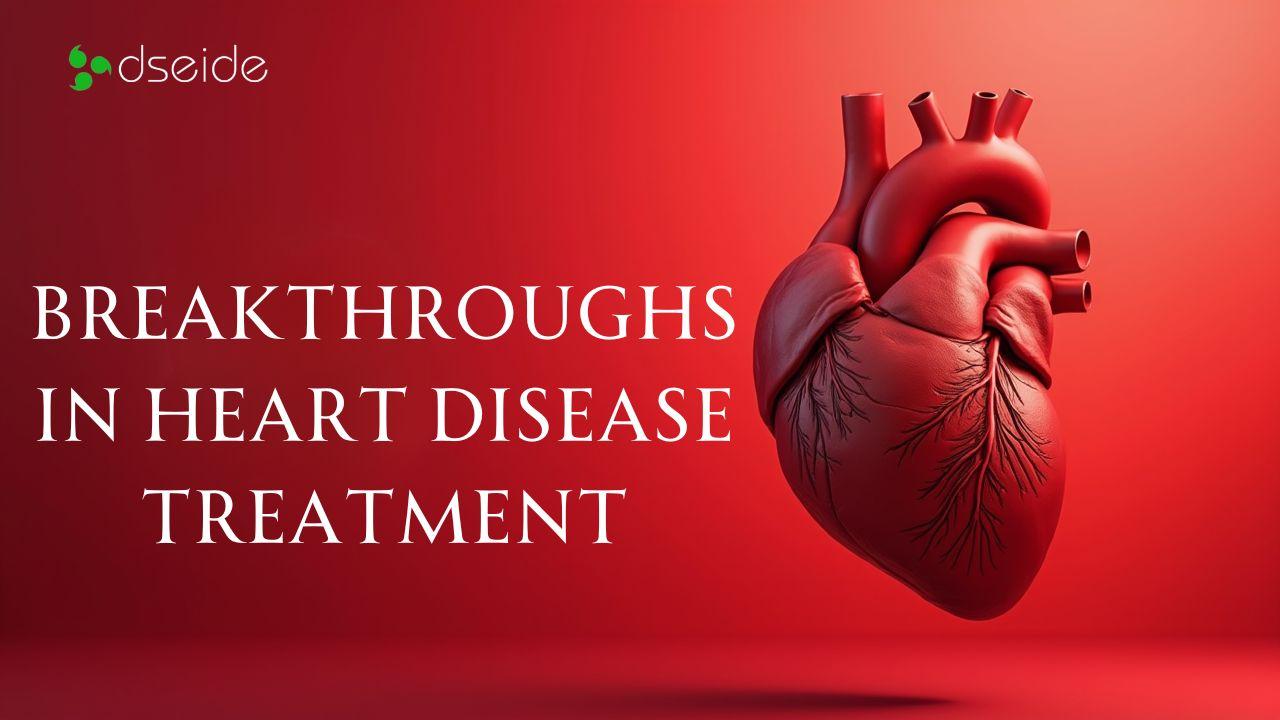Breakthroughs in Heart Disease Treatment Researchers are developing innovative treatments for heart disease, including new drugs and therapies to reduce heart attacks and stroke risks. For example, scientists are testing gene therapies that could potentially regenerate heart tissue after damage from a heart attack. Some drugs are targeting specific proteins or inflammatory markers that contribute to heart disease, offering more personalized treatment options.
Artificial Intelligence in Cardiology AI is becoming a critical tool in cardiology, aiding in the early detection of heart disease. Machine learning algorithms can analyze vast amounts of data from ECGs, imaging studies, and electronic health records to predict heart attacks or other cardiac events before they occur. AI-assisted systems are now being used to detect irregular heartbeats and interpret imaging results faster and more accurately than humans.
Wearable Technology for Heart Health Wearables like smartwatches and fitness trackers are becoming increasingly popular for monitoring heart health. Many of these devices can now measure heart rate variability, detect arrhythmias, and even perform electrocardiograms (ECGs). These features help users monitor their heart health in real time and alert them to potential issues, empowering them to seek medical help sooner.
Advanced Imaging for Heart Disease Diagnosis New imaging techniques, such as 4D MRI and 3D echocardiography, are helping doctors get more detailed views of the heart's structure and function. These advanced methods allow for more precise diagnosis and treatment planning, especially for complex conditions like congenital heart disease or heart valve disorders.
Transcatheter Aortic Valve Replacement (TAVR) Expands The minimally invasive procedure known as TAVR, which allows doctors to replace the aortic valve without open-heart surgery, continues to expand in use. It’s particularly beneficial for elderly patients or those who are too high-risk for traditional surgery. With its growing success, more patients are becoming eligible for this less invasive alternative to heart surgery.
Focus on Heart Health for Women Recent studies have highlighted that women often experience different symptoms of heart disease than men, leading to underdiagnosis. There’s now a stronger focus on addressing this disparity by increasing awareness and developing gender-specific treatments for heart disease in women. Researchers are exploring how hormonal differences, especially around menopause, influence heart disease risk.
These developments demonstrate the ongoing efforts to improve prevention, diagnosis, and treatment of heart conditions, offering hope for better patient outcomes.
Artificial Intelligence in Cardiology AI is becoming a critical tool in cardiology, aiding in the early detection of heart disease. Machine learning algorithms can analyze vast amounts of data from ECGs, imaging studies, and electronic health records to predict heart attacks or other cardiac events before they occur. AI-assisted systems are now being used to detect irregular heartbeats and interpret imaging results faster and more accurately than humans.
Wearable Technology for Heart Health Wearables like smartwatches and fitness trackers are becoming increasingly popular for monitoring heart health. Many of these devices can now measure heart rate variability, detect arrhythmias, and even perform electrocardiograms (ECGs). These features help users monitor their heart health in real time and alert them to potential issues, empowering them to seek medical help sooner.
Advanced Imaging for Heart Disease Diagnosis New imaging techniques, such as 4D MRI and 3D echocardiography, are helping doctors get more detailed views of the heart's structure and function. These advanced methods allow for more precise diagnosis and treatment planning, especially for complex conditions like congenital heart disease or heart valve disorders.
Transcatheter Aortic Valve Replacement (TAVR) Expands The minimally invasive procedure known as TAVR, which allows doctors to replace the aortic valve without open-heart surgery, continues to expand in use. It’s particularly beneficial for elderly patients or those who are too high-risk for traditional surgery. With its growing success, more patients are becoming eligible for this less invasive alternative to heart surgery.
Focus on Heart Health for Women Recent studies have highlighted that women often experience different symptoms of heart disease than men, leading to underdiagnosis. There’s now a stronger focus on addressing this disparity by increasing awareness and developing gender-specific treatments for heart disease in women. Researchers are exploring how hormonal differences, especially around menopause, influence heart disease risk.
These developments demonstrate the ongoing efforts to improve prevention, diagnosis, and treatment of heart conditions, offering hope for better patient outcomes.
Breakthroughs in Heart Disease Treatment Researchers are developing innovative treatments for heart disease, including new drugs and therapies to reduce heart attacks and stroke risks. For example, scientists are testing gene therapies that could potentially regenerate heart tissue after damage from a heart attack. Some drugs are targeting specific proteins or inflammatory markers that contribute to heart disease, offering more personalized treatment options.
Artificial Intelligence in Cardiology AI is becoming a critical tool in cardiology, aiding in the early detection of heart disease. Machine learning algorithms can analyze vast amounts of data from ECGs, imaging studies, and electronic health records to predict heart attacks or other cardiac events before they occur. AI-assisted systems are now being used to detect irregular heartbeats and interpret imaging results faster and more accurately than humans.
Wearable Technology for Heart Health Wearables like smartwatches and fitness trackers are becoming increasingly popular for monitoring heart health. Many of these devices can now measure heart rate variability, detect arrhythmias, and even perform electrocardiograms (ECGs). These features help users monitor their heart health in real time and alert them to potential issues, empowering them to seek medical help sooner.
Advanced Imaging for Heart Disease Diagnosis New imaging techniques, such as 4D MRI and 3D echocardiography, are helping doctors get more detailed views of the heart's structure and function. These advanced methods allow for more precise diagnosis and treatment planning, especially for complex conditions like congenital heart disease or heart valve disorders.
Transcatheter Aortic Valve Replacement (TAVR) Expands The minimally invasive procedure known as TAVR, which allows doctors to replace the aortic valve without open-heart surgery, continues to expand in use. It’s particularly beneficial for elderly patients or those who are too high-risk for traditional surgery. With its growing success, more patients are becoming eligible for this less invasive alternative to heart surgery.
Focus on Heart Health for Women Recent studies have highlighted that women often experience different symptoms of heart disease than men, leading to underdiagnosis. There’s now a stronger focus on addressing this disparity by increasing awareness and developing gender-specific treatments for heart disease in women. Researchers are exploring how hormonal differences, especially around menopause, influence heart disease risk.
These developments demonstrate the ongoing efforts to improve prevention, diagnosis, and treatment of heart conditions, offering hope for better patient outcomes.






